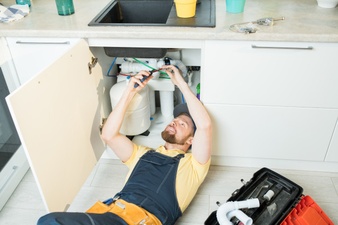When the summer heat starts kicking in, doesn’t it feel good to jump into the pool?
Spending hours in the soothing water, swimming, and having a relaxing time takes all the summer heat away.
And if you have a pool in your backyard, you can go swimming anytime you want, right?
The only problem is, keeping the pool clean and hygienic to swim. If you are getting inside the water, it’s essential to make sure the water won’t harm your skin or hair.
Pool cleaning and maintenance are almost as important as taking a bath every day.
The easiest way is to follow a certain procedure and regular practices to keep the water clean. You might also want to buy some cleaning chemicals.
While pool cleaning can get a bit costlier, there are some easy-to-use and cheap online pool supplies available to save your day.
Here is how you can maintain the pool and enjoy a swim round anytime in a day.
Pool Maintenance Basics –
Maintaining a pool is a three-step process and is pretty easy once you get used to it.
Step 1: Water Circulation
As much as the water keeps circulating, the pool is going to stay healthy. The water will carry any invisible dirt and debris towards the filters to keep itself clean and harmless.
Ideally, the pool filters and pumps should keep the water running all the time. But considering the electricity situation, that might not be possible.
It will be cheaper if you follow a certain timetable to keep the water running. The best solution would be to turn on filters and pumps during the night hours till the morning.
A good 8-hour routine would be enough for water circulation.
Step 2: Cleaning The Pool and Equipment
The circulating water will carry and trap any debris into the pump baskets and filters.
To maintain those tools functioning, clean all the pump baskets and filters.
You might have sand filters or cartridge filters. Cleaning both the filters is easy and doesn’t need a lot of work.
There are some automatic, robotic vacuum cleaners and filters that can do the cleaning themselves so that you can invest in that as well.
Now, to clean the pool, first, pick up the skimmer and get all the visible debris out.
Then brush and clean the walls, steps, ladders to get rid of any collected dirt that might harm the water. Brushing on alternate days would be a good idea.
Cleaning can never be enough, be more generous in this step. Shine the pool and the water.
Step 3: Pool Chemistry
Pool Chemistry might sound tricky and complex to understand for beginners. But it isn’t.
A couple of sanitizers and chemicals are going to help you maintain the pH of the water.
Ideally, the pH of the pool water should be between 7.2 to 7.6, and the alkalinity range should be 100-150 ppm.
Get some pool test strips to test these ranges and use the chemicals accordingly.
Have pool chlorine and dispensers in handy all the time. If you have a saltwater pool, then you can get salt supplies at a cheaper rate online at Watson’s.
Test the water every other day to make sure it’s safe to enter.
Final Words:
Pool cleaning and maintenance activity is actually as fun as swimming. Once you understand and sync into the whole process, it’s quite easy to do it at least once a week.
Get into the cleaning mode, and your pool will stay functional for a longer time. Next time you host a party, your pool will be shining with crystal clear water.
Read Also:
- Top 5 Tips in Designing Your Swimming Pool
- Renting a villa in Malta with a private pool
- 5 Hotel Housekeeping Tricks You Need To Clean Your Bathroom
























